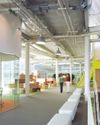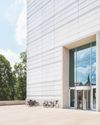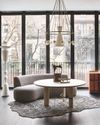Post-occupancy evaluations are still not common practice. What might accelerate their adoption?

On the eve of a massive building campaign for which universities planned to invest billions in new student housing, two architects undertook an unprecedented study of what students needed and wanted. Talking to residents and observing their habits in detail, they found that the typical new dormitory design was woefully inadequate. Public space was underutilized, personal space was inflexible, and housing was isolated from other functions on campus. Dorms were cold and impersonal— “as homey as a Greyhound bus depot,” according to one student—and surveys revealed that many inhabitants felt “stifled” and even “enraged.” Proposing an alternative, mixed-use approach that offered greater variety and more flexibility, the architects found that universities could significantly improve the student experience at two-thirds the cost.
That was 50 years ago. Sim Van der Ryn and Murray Silverstein’s groundbreaking research, published in 1967 as Dorms at Berkeley: An Environmental Analysis, was possibly the first formal example of what came to be called post-occupancy evaluation (POE), the process of assessing buildings after the fact. “There is no feedback channel between planning assumptions and building use,” they declared. “Our focus is on the silent partner in the design process—the user affected by design decisions.”
Today, POEs vary widely in scope, but generally they focus on two basic questions: Is the building behaving as intended? And are occupants happy with the results? Studies consistently show correlations between the two; a report last year indicated that 88 percent of building-performance attributes directly affect user satisfaction.
Diese Geschichte stammt aus der November/December 2018-Ausgabe von Metropolis Magazine.
Starten Sie Ihre 7-tägige kostenlose Testversion von Magzter GOLD, um auf Tausende kuratierte Premium-Storys sowie über 8.000 Zeitschriften und Zeitungen zuzugreifen.
Bereits Abonnent ? Anmelden
Diese Geschichte stammt aus der November/December 2018-Ausgabe von Metropolis Magazine.
Starten Sie Ihre 7-tägige kostenlose Testversion von Magzter GOLD, um auf Tausende kuratierte Premium-Storys sowie über 8.000 Zeitschriften und Zeitungen zuzugreifen.
Bereits Abonnent? Anmelden

No New Buildings
The energy already embodied in the built environment is a precious unnatural resource. It’s time to start treating it like one.

The Circular Office
Major manufacturers are exploring every avenue to close the loop on workplace furniture.

Signs of Life
Designers, curators, and entrepreneurs are scrambling to make sense of motherhood in a culture that’s often hostile to it.

Interspecies Ethic
In probing the relationship between humans and nature, two major exhibitions question the very foundations of design practice.

Building on Brand
The Bauhaus turned 100 this year, and a crop of museum buildings sprang up for the celebration.

Building for Tomorrow, Today
Radical change in the building industry is desperately needed. And it cannot happen without the building trades.

Strength from Within
Maggie’s Centres, the service-focused cancer support network, eschews clinical design to arm patients in their fight for life.

Next-Level Living
The availability of attractive, hospitality-grade products on the market means everyday consumers can live the high life at home.

Mi Casa, Su Casa
Casa Perfect creates a memorable shopping experience in lavish private homes.

Enter The Culinarium
AvroKO imagines the future of residential amenities—where convenience, comfort, and sustainability meet.